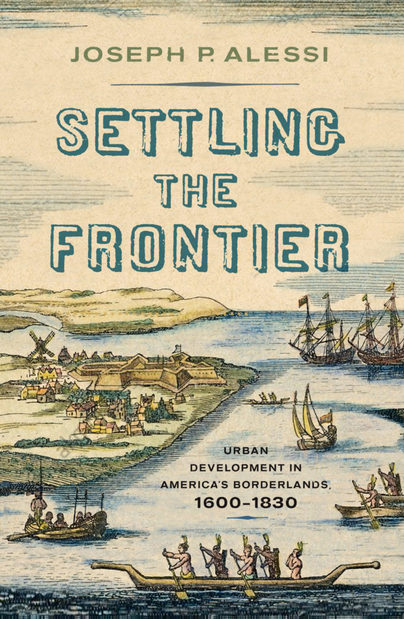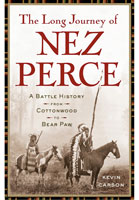Settling the Frontier (Hardback)
Urban Development in America’s Borderlands, 1600–1830
By
Joseph P Alessi
Imprint: Westholme
Pages: 400
Illustrations: 28 halftones
ISBN: 9781594163333
Published: 25th November 2021
Imprint: Westholme
Pages: 400
Illustrations: 28 halftones
ISBN: 9781594163333
Published: 25th November 2021
You'll be £25.00 closer to your next £10.00 credit when you purchase Settling the Frontier. What's this?
+£4.99 UK Delivery or free UK delivery if order is over £40
(click here for international delivery rates)
Need a currency converter? Check XE.com for live rates
(click here for international delivery rates)
Need a currency converter? Check XE.com for live rates
In 1811, while escorting members of John Jacob Astor’s Pacific Fur Company up the Columbia River, their Chinookan guide refused to advance beyond a particular point that marked a boundary between his people and another indigenous group. Long before European contact, Native Americans created and maintained recognized borders, anging from family hunting and fishing properties to larger tribal territories to vast river valley regions. Within the confines of these respective borders, the native population often established permanent settlements that acted as the venues for the major political, economic, and social activities that took place in virtually every part of precolonial North America. It was the location of these native settlements that played a major role in the establishment of the first European, and later, American frontier towns.
In Settling the Frontier: Urban Development in America’s Borderlands, 1600–1830, historian Joseph P. Alessi examines how the Pecos, Mohawk, Ohioan, and Chinook tribal communities aided Europeans and Americans in the founding of five of America’s earliest border towns—Santa Fe (New Mexico), Fort Amsterdam (New York City), Fort Orange (Albany, New York), Fort Pitt (Pittsburgh, Pennsylvania), and Fort Astoria (Portland, Oregon). Filling a void in scholarship about the role of Native American communities in the settlement of North America, Alessi reveals that, although often resistant to European and American progress or abused by it, Indians played an integral role in motivating and assisting Europeans with the establishment of frontier towns. In addition to the location of these towns, the native population was often crucial to the survival of the settlers in unfamiliar and unforgiving environments. As a result, these new towns became the logistical and economic vanguards for even greater development and exploitation of North America.
There are no reviews for this book. Register or Login now and you can be the first to post a review!
About Joseph P Alessi
JOSEPH P. ALESSI teaches history at Youngstown State University. A retired US Army lieutenant colonel, he earned an MA and PhD in history from St. Louis University. He as taught at the United States Military Academy, Washington University in St. Louis, and the University of Pittsburgh. He is a contributor to Studies of Changing Societies, The International Encyclopedia of Military History, The Encyclopedia of American Indian Wars, and Treaties with American Indians: An Encyclopedia of Rights, Conflicts, and Sovereignty.
Other titles in Westholme...














